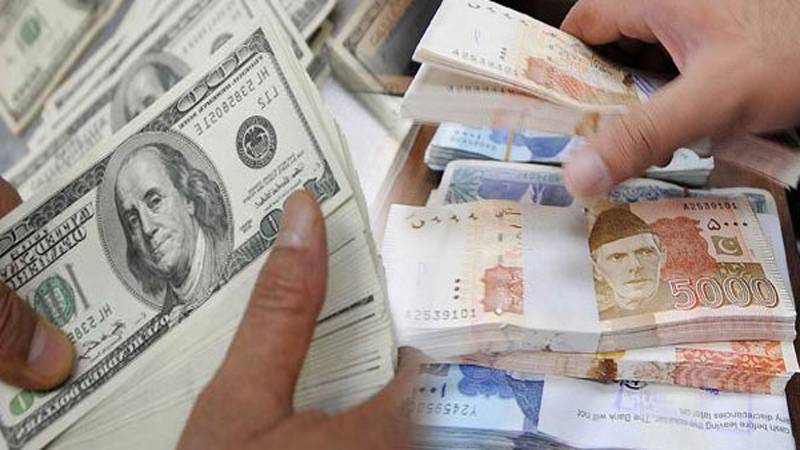Foreign exchange reserves, often referred to as forex reserves, play a crucial role in a nation’s economic well-being. These reserves constitute a pool of foreign currencies, gold, and other financial assets held by a country’s central bank or monetary authority. Their primary purpose is to facilitate international transactions, stabilize the exchange rate, and serve as a buffer against external economic shocks. In this article, we will delve into the significance of Pakistan’s total forex reserves and explore the factors that influence its levels.

Image: blogs.lse.ac.uk
Understanding Pakistan’s Forex Reserves
Comprising a mix of currencies, including US dollars, euros, and British pounds, as well as gold and special drawing rights (SDRs), Pakistan’s total forex reserves indicate the country’s ability to meet its external financial obligations and import needs. Forex reserves are accumulated through foreign direct investment inflows, exports, remittances, and other sources of foreign currency earnings. They are utilized to purchase essential imports, such as machinery, energy, and raw materials, and to repay external debts.
Influences on Forex Reserves
Pakistan’s total forex reserves are subject to various internal and external factors. These include:
- Foreign Direct Investment (FDI): FDI inflows boost forex reserves by bringing in foreign currency for investment purposes.
- Exports: As exports are paid for in foreign currencies, they contribute to the accumulation of forex reserves.
- Remittances: Overseas Pakistanis send remittances to their families in Pakistan, which are received in foreign currency and add to the country’s forex reserves.
- External Debts: When Pakistan takes on external debt, it typically receives foreign currency loans that increase its forex reserves. However, debt repayments reduce these reserves.
Importance of Ample Forex Reserves
Maintaining adequate forex reserves is crucial for various reasons:
- Import Financing: Forex reserves ensure that Pakistan can pay for essential imports, stabilizing the supply of goods and services.
- Exchange Rate Stability: Ample forex reserves give the State Bank of Pakistan (SBP) the ability to intervene in the foreign exchange market and stabilize the exchange rate, preventing sharp fluctuations that can harm the economy.
- External Shocks Mitigation: Forex reserves provide a buffer against external economic shocks, such as global financial crises or natural disasters, enabling Pakistan to meet its financial obligations and maintain economic stability.
- Investor Confidence: Robust forex reserves boost investor confidence in a country’s economy, encouraging foreign investment and economic growth.

Image: en.dailypakistan.com.pk
Latest Trends and Developments
In recent years, Pakistan’s total forex reserves have experienced fluctuations due to various factors. The COVID-19 pandemic, global economic slowdown, and political uncertainties have impacted foreign currency inflows and increased import demand. The SBP has taken measures to manage forex reserves, including adjusting monetary policy, rationing foreign exchange for certain imports, and seeking external financial assistance.
Tips for Forex Reserves Management
Pakistan can strengthen its forex reserves management through prudent policies and effective strategies:
- Promoting Export-Oriented Industries: Boosting exports generates foreign currency earnings and helps accumulate forex reserves.
- Encouraging Remittances: Facilitating remittances from overseas Pakistanis contributes to forex inflows.
- Managing External Debt Prudently: Striking a balance between borrowing and repaying external debt is crucial to prevent excessive debt accumulation.
- Attracting Foreign Direct Investment: Creating a favorable investment climate attracts FDI, a key source of forex reserves.
- Conservative Monetary Policy: Implementing monetary policies that maintain a stable exchange rate and discourage excessive import demand can help preserve forex reserves.
Frequently Asked Questions
1. Who manages Pakistan’s forex reserves?
The State Bank of Pakistan (SBP), the central bank of the country, manages Pakistan’s total forex reserves.
2. What is the current level of Pakistan’s forex reserves?
According to the latest data, Pakistan’s total forex reserves stand at approximately $16 billion.
3. How does the government use forex reserves?
The government utilizes forex reserves primarily to finance essential imports, stabilize the exchange rate, and repay external debts.
4. What are the risks of low forex reserves?
Low forex reserves can lead to currency devaluation, difficulty in importing essential goods, and increased vulnerability to external economic shocks.
Total Forex Reserve Of Pakistan
Conclusion
Foreign exchange reserves are a vital indicator of a nation’s economic stability and resilience. Pakistan’s total forex reserves play a crucial role in facilitating international transactions, stabilizing the exchange rate, and providing a buffer against external shocks. Effective management of forex reserves is essential for maintaining a sound economic environment, encouraging investment, and enabling sustainable economic growth. By understanding the significance of forex reserves and implementing prudent policies, Pakistan can strengthen its economic position and enhance its ability to navigate global economic challenges.
Dear reader, we encourage you to share your thoughts and questions on Pakistan’s forex reserves in the comments section below. Are you interested in learning more about this topic? Let us know, and we’ll be happy to provide you with further information and engage in a discussion.






